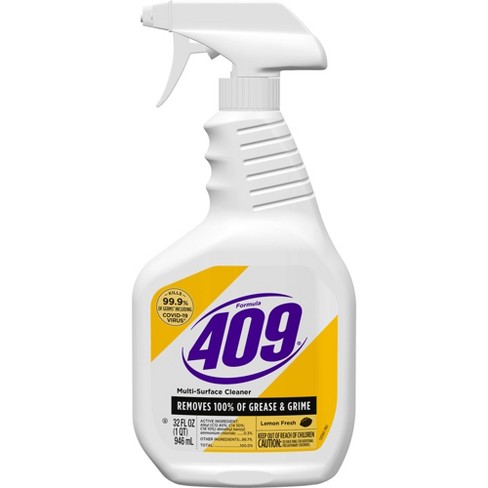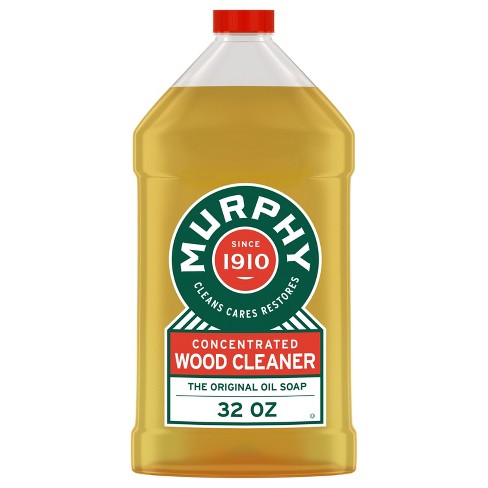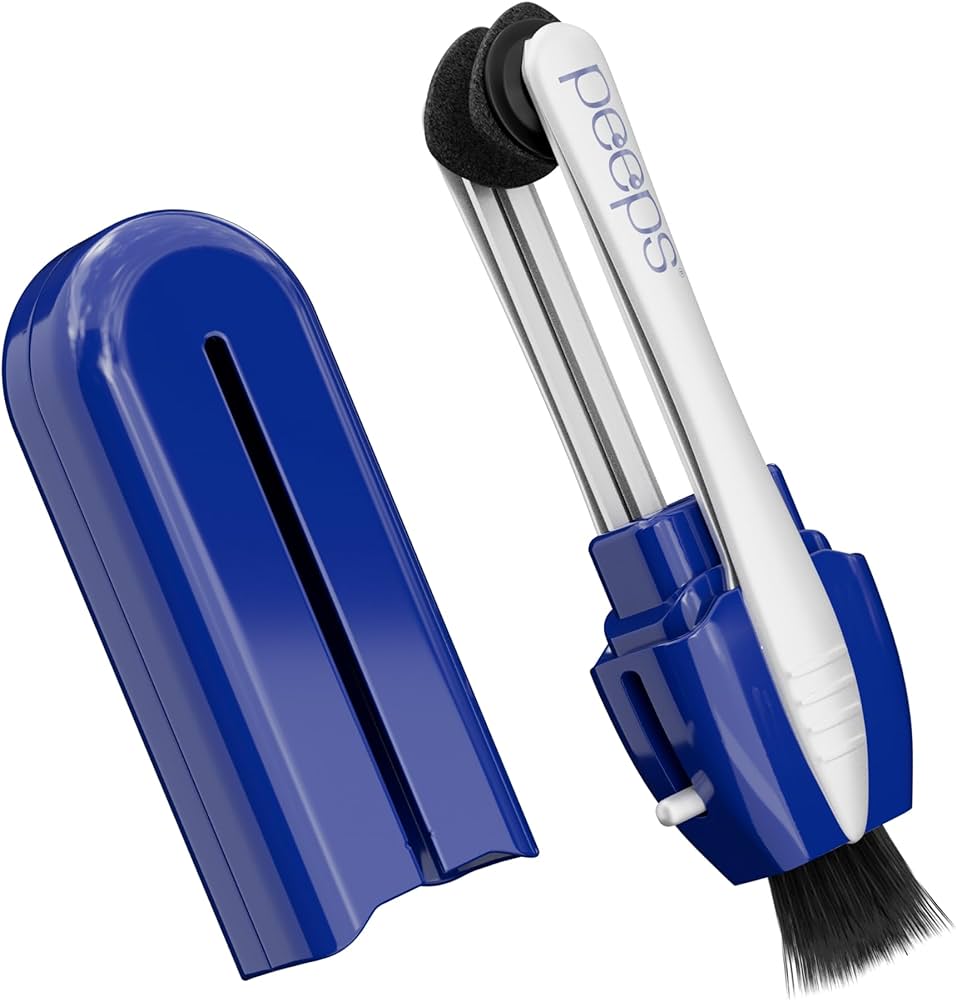Hydrogen peroxide can be effective for minor wound cleaning while rubbing alcohol is suitable for sterilizing surfaces. Both have disinfectant properties but address different needs.
Choosing between rubbing alcohol and hydrogen peroxide for cleaning depends on the task. Rubbing alcohol, containing either isopropyl or ethyl alcohol, evaporates quickly, making it ideal for sanitizing surfaces without leaving a residue. It is a staple for disinfecting items like thermometers or used in electronic devices where moisture is a concern.
Hydrogen peroxide, on the other hand, is often used for its effervescent properties in cleansing wounds, as it can help dislodge debris. Though less potent as a surface disinfectant than rubbing alcohol, it breaks down into water and oxygen, making it a more environmentally friendly option. Understanding the specific uses of each can result in more effective cleaning and disinfection while also ensuring safety and preserving the integrity of the items you’re cleaning.

Credit: hodgeproductsinc.com

Credit: www.amazon.com
Differences Between Rubbing Alcohol And Hydrogen Peroxide
Imagine a world where every surface in your home sparkles. That’s the power of the proper cleaning agent. In the battle for cleanliness, rubbing alcohol and hydrogen peroxide are champions. But they are not the same. Each has unique abilities to tackle the pesky germs. Let’s discover the core differences.
Chemical Composition
Rubbing alcohol, known chemically as isopropyl alcohol, consists mainly of carbon, hydrogen, and oxygen. Perfect for your quick cleaning solutions. On the other hand, hydrogen peroxide is composed of hydrogen and oxygen. It’s like water’s fierce cousin with an extra oxygen atom ready for disinfecting action.
Cleaning Properties
When it comes to cleaning, each agent has its arena of effectiveness. Rubbing alcohol is a desiccant, meaning it dries out and kills the cells of bacteria and viruses on your surfaces. In contrast, hydrogen peroxide is an oxidizing agent, breaking down cell walls through a fizzing reaction that’s tough on grime.
| Agent | Base Use | Killing Method | Surface Suitability |
|---|---|---|---|
| Rubbing Alcohol | General Cleaning | Dehydration | Electronics, Glass |
| Hydrogen Peroxide | Disinfection | Oxidation | Countertops, Wounds |
To wrap it up, remember this simple rule: rubbing alcohol for grease and electronics, hydrogen peroxide for stains and disinfection. Choose wisely for a sparkling clean that shines!

Credit: www.riteaid.com
Using Rubbing Alcohol For Cleaning
Rubbing alcohol shines as a stellar cleaning agent. Its power to disinfect and degrease makes it a go-to for many households. Let’s dive into how to use this versatile cleaner safely and effectively.
Surface Applications
Many surfaces benefit from rubbing alcohol’s quick-drying and sanitizing characteristics. Ideal for kitchens and bathrooms, it can tackle everything from countertops to faucets. Here’s where it excels:
- Glass cleaning: Streak-free shine.
- Electronic devices: Smudge-free screens.
- Stainless steel: Removes fingerprints and water spots.
For best results:
- Apply with a soft cloth or spray directly onto the surface.
- Wipe in a circular motion for an even clean.
- Avoid wood or painted surfaces, as alcohol may strip finishes.
Safety Considerations
While rubbing alcohol is effective, it’s also a chemical that requires care. Consider these tips:
| Consideration | Tip |
|---|---|
| Ventilation | Use in a well-ventilated area. |
| Flammability | Keep away from heat sources, as it’s highly flammable. |
| Storage | Store in a cool, dry place out of children’s reach. |
Always test on a small area first. Wear gloves to protect your skin and avoid mixing with other chemicals, especially bleach, to prevent harmful reactions.
Using Hydrogen Peroxide For Cleaning
Hydrogen peroxide is a powerful disinfectant. It is a safe and effective cleaning agent. Many choose it for its antibacterial properties. It’s excellent for tackling a variety of cleaning tasks at home.
Surface Applications
Perfect for many household surfaces, hydrogen peroxide simplifies cleaning. Here’s how to use it:
- Countertops: Spray on, let it bubble, wipe clean.
- Grout: Apply with a toothbrush, scrub, and rinse.
- Appliances: Clean with a cloth dampened in peroxide.
| Surface | Procedure |
|---|---|
| Glass | Spray, let it sit, and wipe it for a streak-free shine. |
| Wooden boards | Apply, let sit, and rinse to disinfect safely. |
Safety Considerations
Hydrogen peroxide is safe when used correctly. Keep these tips in mind:
- Store it in a cool, dark place.
- Please keep it away from children and pets.
- Use in a well-ventilated area.
- Avoid mixing with other cleaners.
/ For diluted solutions /
mix 1 part peroxide with 2 parts water.
Use gloves to protect the skin when cleaning with concentrated solutions.

Credit: www.alamy.com
Best Practices For Effective Cleaning
Cleaning with rubbing alcohol and hydrogen peroxide keeps your surfaces safe. Effective cleaning eliminates germs and dirt. Let’s explore the best ways to use these cleaners at home. Follow these steps to ensure a clean and hygienic environment.
Combining Rubbing Alcohol And Hydrogen Peroxide
When using rubbing alcohol and hydrogen peroxide, avoid mixing. They are potent on their own. A mixture can be dangerous. Use them separately for cleaning tasks.
- Use rubbing alcohol for surfaces like glass or stainless steel.
- Hydrogen peroxide is better for colored fabrics to avoid stains.
Be mindful of the concentration. A solution of 70% isopropyl alcohol is commonly used. A 3% solution for hydrogen peroxide is safe for most household tasks.
Alternatives And Considerations
Know your alternatives. Vinegar and baking soda are safe and non-toxic options. They work well for many cleaning jobs. Check their suitability for different surfaces to prevent damage.
| Solution | Use Case | Consideration |
|---|---|---|
| Vinegar | Glass cleaner | Avoid natural stone |
| Baking Soda | Surface scrub | Test on a small area first |
Always ventilate the area when cleaning. Skin and eye protection is necessary to prevent irritation. Keep cleaning supplies out of children’s reach.
Frequently Asked Questions About Rubbing Alcohol Or Hydrogen Peroxide For Cleaning
Is Rubbing Alcohol Better Than Hydrogen Peroxide For Cleaning?
Rubbing alcohol is generally a better choice for cleaning electronic devices and glass surfaces due to its quick evaporation and streak-free finish. However, hydrogen peroxide is preferable for its antiseptic properties in wound care.
Can Hydrogen Peroxide Disinfect Surfaces As Effectively As Alcohol?
Yes, hydrogen peroxide can effectively disinfect surfaces. It’s especially good at killing bacteria, viruses, yeasts, and spores. However, it works slower than alcohol and can damage certain materials over time.
What Are The Risks Of Using Rubbing Alcohol For Cleaning?
Using rubbing alcohol poses a fire risk due to its high flammability. It can also cause damage to some plastics, finishes, and fabrics if not used carefully. Always work in a well-ventilated area.
How Does The Cost Of Hydrogen Peroxide Compare To Rubbing Alcohol?
Hydrogen peroxide is generally less expensive than rubbing alcohol. Prices can vary depending on the brand and the concentration of the solutions, but peroxide typically offers a more cost-effective cleaning solution.
Conclusion
Deciding between rubbing alcohol and hydrogen peroxide for cleaning can be straightforward. Each has its advantages, tailored to different tasks. Remember, rubbing alcohol dries quickly and is great for electronics, while hydrogen peroxide excels in disinfecting wounds and surfaces. Choose wisely for a cleaner, safer home.




Leave a Reply
You must be logged in to post a comment.